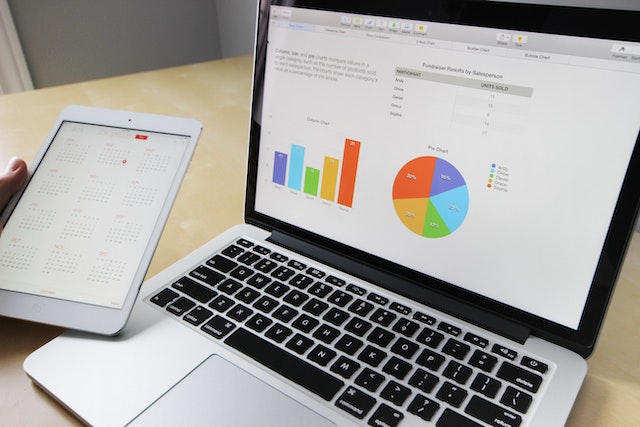Dataiku is a unified, open-source, cloud-based Data Science platform. It provides data preparation, analysis, and Machine Learning model building features. Discover everything you need to know about this essential tool for Data Science and Artificial Intelligence!
The goal of Data Science is to transform data into actionable insights for strategic decision-making. However, it is necessary to prepare, format, and clean raw data to analyze it effectively.
Data preparation poses numerous challenges. In many organizations, data is scattered across multiple locations and fragmented.
Another challenge is the skill and expertise gap in data among different teams. This can hinder collaboration, impede communication, and lead to duplicated efforts.
In general, data preparation is often a slow, manual process involving extensive Excel downloads. Addressing these various issues is the goal that Dataiku has set for itself.
What is Dataiku?
Launched in 2013, Dataiku is a comprehensive and centralized solution for designing, deploying, and managing data analytics, Machine Learning, and Artificial Intelligence applications.
This tool is infrastructure-agnostic, working with all types of clouds and on-premises storage and computing systems. Its goal is to meet the needs of Data Scientists, Data Engineers, business analysts, and AI developers.
Unlike ELT (extract, transform, load) solutions used by Data Engineers, Dataiku is used to prepare data just before the creation of a specific report or visualization.

Dataiku is a customizable tool used by Data Scientists, business analysts, and Data Analysts. The platform offers nearly a hundred data transformers that cover a wide variety of data manipulations, such as binning, chaining, currency or date conversion, filtering, or splitting.
Even if a transformer isn’t available in the catalog, users can easily write formulas similar to those used in spreadsheets for data transformation tasks.
Originally, Dataiku was known as Dataiku DSS: Data Science Studio. It was designed as a central platform accessible and usable by all Data Scientists, from beginners to experts capable of writing their own models in R or Python.
The Lab section provides support for model creation. Users are guided through the steps and can learn through a highly intuitive user interface.
In summary, Dataiku is an accessible tool that serves as a gateway between data sources and analytical reports or visualizations.
It enables users of all skill levels to prepare data for analysis or build models, relieving Data Engineers of some of their work.
This tool is used for a wide variety of applications, including customer segmentation, fraud detection, customer scoring, Deep Learning, data analysis, or natural language processing.
An agnostic, open-source platform
Dataiku is an open-source Data Science platform. It allows for building, deploying, and managing data science projects.
Its governance features enable the documentation of project objectives, critical decisions, models, and much more. It also facilitates managing production lifecycles at scale and ensuring legal compliance.
The Dataiku Data Science Studio enables collaboration between Data Engineers and Data Scientists to create data products.
Its visual interface and integrated coding simplify data analysis. It supports languages like R and Python, and integrates with many other platforms.
Data Scientists can leverage DSS to create data visualizations. This platform can be managed through a user interface or a public API.

A cloud-based tool
Dataiku is cloud-based, which allows for efficient connection to numerous data sources and data warehouses. Moreover, the calculations at each step of the process can be pushed to a database, reducing dependence on local machine capabilities.
It’s also possible to schedule workflow execution without the need to connect to one’s instance.
The stack accelerator is compatible with Azure and helps users migrate their Dataiku AI applications to the Microsoft cloud quickly and easily. The cloud also facilitates data backup and maintenance.
IT administrators can more easily manage daily workloads with the help of numerous templates. They can also monitor Dataiku instances with ease.
Furthermore, Dataiku is a tool designed for collaboration. Thanks to Git integration, multiple people can work on the same project simultaneously. A shared task list is also available.
This platform is also known for its accessibility. It is designed for both coders and non-technical users, preventing teams from working in silos and enabling cross-collaboration.
Learning to use Dataiku is very easy, thanks to comprehensive documentation including wiki pages and a discussion forum.
Finally, its end-to-end analytics solution is highly customizable and scalable.
It is compatible with all containerization services and on-premises Docker clusters. This makes it easy for organizations of all sizes to deploy AI solutions.
An easy-to-use solution
Several features make Dataiku very user-friendly. This tool is accessible to anyone, and the various packages cater to both teams and small businesses, as well as startups. Regardless of the expertise level of your data analysis team, it can be used to produce high-quality reports.
The Data Science Studio is a cross-platform desktop application that allows engineers to write code. It includes workflow orchestration tools.

The unified deployer, on the other hand, allows for the management of project files and packaging them for production environments. The user interface makes it easy to create dashboards for projects.
More than 25 chart formats are available, and users can drag and drop data. A visual flow represents the DataOps process and provides simplified access to different steps.
Multiple tools enable the creation and training of models. The Dataiku Machine Learning Guidebook provides an introduction to Machine Learning.
The data preparation environment is directly accessible via a web browser, and users can create data visualizations or Machine Learning models there.
This powerful Data Science platform designed for business analysts and Data Scientists enables the creation of custom applications for data preparation, pipeline automation, statistical analysis, and model development.
In total, it supports 4 Machine Learning engines and 32 core algorithms. Thirty different connectors are also available.
What's the link between Dataiku and Deep Learning?
As a Data Science framework, Dataiku allows for the development, training, and deployment of Deep Learning models on a cluster of machines. Several visual Machine Learning tools are included for tasks such as image classification and natural language processing. It also offers containerization features and supports models trained on multiple GPUs.
Data Scientists and other experts can take advantage of a wide range of coding features. It’s possible to use a big data programming language on the platform.
A visual interface makes it very easy to apply Machine Learning models. Additionally, the platform-as-a-service approach eliminates the need for infrastructure.
Furthermore, Dataiku is also compatible with Bayesian search. This allows running a second AI model in a loop to test different settings and parameters until the optimal configuration is found. This method accelerates AI development and reduces the time required to evaluate different configurations.

Batch scoring is supported using automation nodes. This allows for automatic retraining of models and updating of data.
A monitoring system is in place to detect Machine Learning model drift. The platform is also integrated with major continuous integration and delivery systems, including Jenkins, GitlabCI, Travis CI, and Azure Pipelines.
Furthermore, multiple data sources and targets are supported to enable loading data from one system and building a model on another.
Depending on the data analysis workflow, Dataiku can be deployed on-premises or in the cloud. Microsoft Azure, Amazon Web Services, and Google Cloud Platform are compatible clouds.
The platform also works with Kubernetes and Docker clusters on-premises or in the cloud. Thanks to its pushdown architecture, Dataiku is scalable and supports workloads of all sizes.
How can I learn to use Dataiku?
Dataiku is an all-in-one Data Science platform that is highly useful for Data Scientists and business analysts. It allows users to create custom applications to automate data preparation, pipelines, statistical analysis, or model development.
With 4 Machine Learning engines and 32 algorithms, this platform simplifies the building of Machine Learning models and data pipelines.
As a result, mastering Dataiku is a valuable skill for Data Science professionals. To acquire it, you can choose DataScientest training.
Our training programs take an innovative approach to blended learning, combining asynchronous learning on a coached platform with masterclasses. All our courses can be completed in bootcamps or as continuous education and are entirely conducted online via the internet.
Our organization is recognized by the State and eligible for different funding options. To learn how to master Dataiku, discover DataScientest!
You know all about Dataiku. For more information on the subject, take a look at our complete dossier on Snowflake and our dossier on GitLab.










